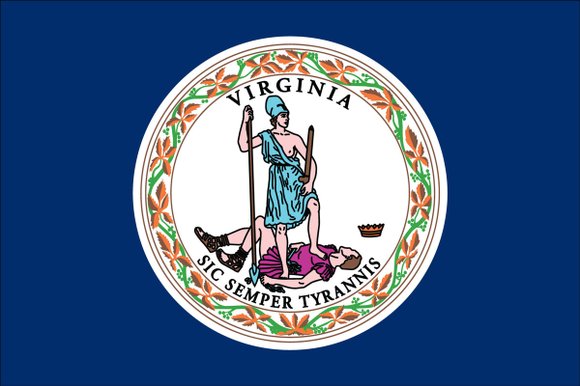2016 General Assembly ends with bipartisan consensus on budget, other measures
Free Press wire reports | 3/17/2016, 8:22 p.m.
The 2016 General Assembly session is over — ending last Friday, a day early, on a high note of accomplishment.
The hectic 59 days produced a landmark compromise on gun laws and a new state budget providing a dramatic boost in spending on public education and offering pay hikes for state workers and lawmakers.
Despite a heated battle over filling a state Supreme Court seat, Democratic Gov. Terry McAuliffe and his allies and Republicans who dominate the House and Senate found plenty of common ground.
The session ended last Friday evening after lawmakers passed a two-year, $105 billion state spending plan effective July 1 that does not include any new taxes or increased fees.
Higher-than-predicted tax revenues allowed legislators to provide a 3 percent raise for state workers and deputy sheriffs and a 2 percent raise for public schoolteachers. Lawmakers also approved boosting their own compensation for attending official, nonsession meetings from $200 to $300 a day.
The legislature largely turned its back on an expansion of charter schools and agreed in the budget to increase spending on K-12 public education by $900 million over the next two years, a point of pride. State colleges and universities also are to receive additional funding.
Republicans provided local school boards more flexibility on the use of state dollars, allowing them to spend it on new teachers, textbooks or in other ways.
“One size does not fit all, so allowing the localities the flexibility to meet their most critical needs was most important to us,” said Delegate Thomas A. “Tag” Greason, R-Loudoun County, a member of the House Appropriations Committee.
The governor did not get everything he wanted in the budget, and once again, Republicans refused to include any provisions to expand Medicaid health insurance to thousands of uninsured Virginians, a top priority for Gov. McAuliffe and Democratic legislators.
Still, the governor said he was pleased with the vast majority of spending proposals.
“It’s a great budget. I’m ecstatic about the budget,” said Gov. McAuliffe, adding that he got about 90 percent of what he sought.
Among other things, he gained authority for a $2.1 billion bond package that will clear the way for new developments on college campuses and for meeting state infrastructure needs. He also secured funding for initiatives in broadband, bioscience and cyber security and gained support for improving state ports, including Richmond’s, to expand trade.
Gov. McAuliffe also praised the legislature for giving the green light to “a logical and long-overdue update to Virginia’s approach to high school education, placing a greater emphasis on hands-on learning, internships, early college courses and industry credentials rather than classroom seat-time.” The changes would take effect in 2018.
The “education investments in our budget are comprehensive and designed to strengthen our talent pipeline from pre-kindergarten to workforce development,” he said. He noted the approval of bills that will usher in “workforce training to meet the needs of businesses in each region. Virginia will be the first state in the nation to create a pay-for-performance workforce-training program.”
The governor also won support for proposals to enable former medics and corpsmen to use their experience to gain health care jobs while seeking state licensure. The legislature also backed his plans to create new state veterans centers in Hampton Roads and Northern Virginia and for an expansion of the Virginia War Memorial in Richmond.
Gov. McAuliffe and Republicans also managed to forge a highly touted compromise on gun-related legislation. The deal will allow more holders of concealed handgun permits from other states to legally carry guns in Virginia, something Republicans wanted. In exchange, the governor and his Democratic allies gained new measures banning people subject to permanent protective orders in domestic abuse cases from owning or carrying firearms and authorizing a State Police presence for the first time at gun shows to provide voluntary background checks.
The governor, limited to a single four-year term, called the deal one of the biggest improvements in gun safety in years, despite withering attacks from opponents.
The governor and Republicans were at loggerheads on other issues. He vetoed several pieces of legislation, including a General Assembly effort to maintain subsidies and incentives for the shrinking coal industry.
Republicans also killed efforts by a liberal-conservative coalition to raise the felony threshold for thefts from $200 to $500 to reduce the number of people tagged with felony records, as well as proposals to enable juveniles to wipe out criminal records.
Democrats also bemoaned the failure of the legislature to pass any of the proposals to ease barriers Republicans have erected to voting.
The session also was marked by a high-decibel fight over a state Supreme Court justice that continued right up until the legislative session’s end.
Republicans ultimately got their way when they elected Virginia Court of Appeals Judge Stephen R. McCullough to the state Supreme Court the day before the session ended, after forcing the ouster of a female justice the governor had temporarily appointed.
Lawmakers are set to return to Richmond in April to take up the governor’s suggested amendments and vetoes of legislation.








